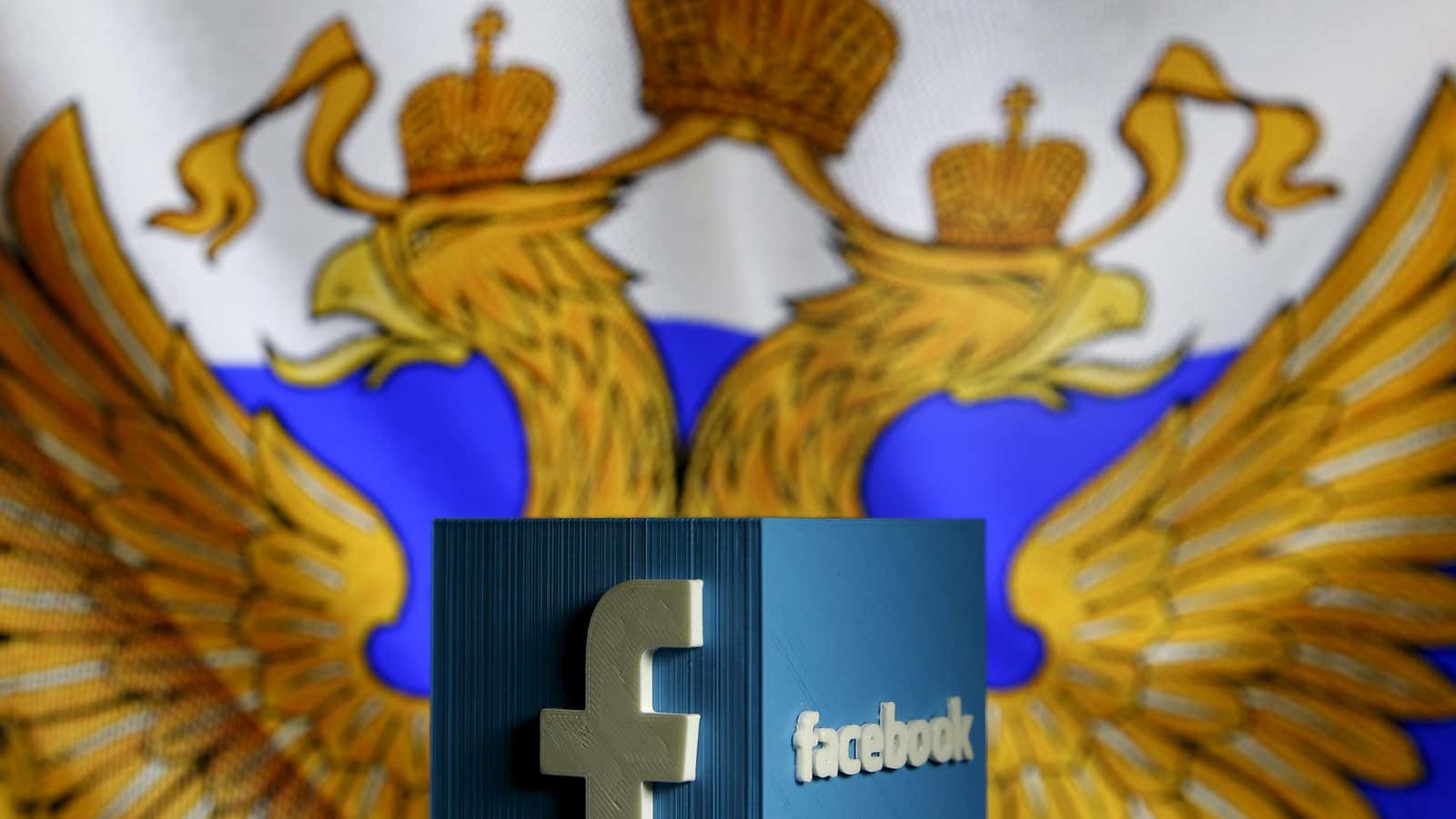For the second time this month, Facebook and Instagram have been banned in Russia. On March 21, a judge in Moscow’s Tverskoy District Court ruled that Facebook and Instagram, the social media services owned by the US-based company Meta, committed extremist activities. The news, first reported by the Russian state-owned news service TASS, said the ruling will not affect the encrypted messaging application WhatsApp, which is also owned by Meta. About 7% of Russians use Facebook, according to eMarketer research, but 51% use Instagram and 66% use WhatsApp.
The court decision comes after the Roskomnadzor, the Russian state communications agency, banned Facebook on March 4 and Instagram on March 14. The agency said that Facebook engaged in “discrimination against Russian media” after labeling Russian state-run media and limiting its algorithmic reach on the website’s news feed. In recent weeks, Facebook has amended its hate speech policy to temporarily allow its users to call for violence against Russian soldiers in Ukraine.
Under the new charges, any Meta employees could be criminally liable in Russia (though it does not have any based there). Russian ad-buyers could also be on the hook for charges of financing extremism, reported TASS. Facebook did not immediately respond to requests for comment.
Bringing down a digital iron curtain
Russia has focused much of its information war on its own citizens, cutting them off from Western news and social media. The country’s legislature recently passed a law criminalizing so-called fake news about the military. In Russia, it’s now illegal to call the war in Ukraine a “war” instead of the government-preferred euphemism “special military operation.” While the government has banned services like Facebook, Instagram, and Twitter explicitly, the fake news law has also scared off TikTok and Netflix which suspended their services in the country earlier this month. Numerous news organizations, including The New York Times, have pulled their reporters out of Russia in response to the law, which carries a 15-year prison sentence for violators.
The new court decision was the next step toward creating a digital iron curtain between Russia and the rest of the world. But Russia’s powers to control the war narrative are limited. It can only censor the internet for those within its own borders and, even then, its citizens have workarounds to get outside information. Demand for virtual private networks, which allow users to access the internet as if from a different country, has skyrocketed in Russia.
Even at home, it seems, Russia’s information war may be a losing battle.
This piece has been updated to reflect Russia’s designation of Facebook for extremist activity.
